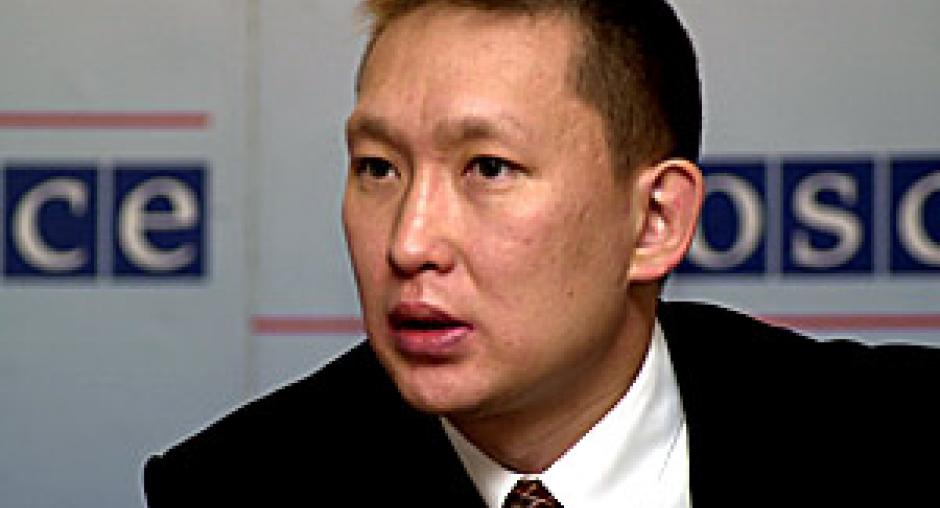ODIHR takes the offensive in support of defence lawyers
Throughout a large part of the OSCE region, a person's ability to get a fair trial can be severely hindered by the lack of proper legal representation. This glaring weakness has never been adequately addressed by the international community, while the few domestic reform efforts have often foundered.
To help tackle this, the Office for Democratic Institutions and Human Rights (ODIHR) is hosting a meeting dedicated to the role of defence lawyers, in Tbilisi on 3-4 November. It will focus on access to legal counsel, structural issues relating to the defence bar, and equality of parties in criminal proceedings.
On the front line in defending human rights
"International actors have been slow in recognizing the importance of the defence lawyer, especially in states where there are concerns over other aspects of the judicial system," says Cynthia Alkon, Head of the ODIHR's Rule of Law Unit.
"But defence lawyers are as important as judges and prosecutors in ensuring a fair trial and are often the first to learn about allegations of torture and mistreatment, before traditionally recognized human rights defenders such as non-governmental organizations."
Shortage of defence lawyers
One problem that affects many of the former Soviet states in particular is an acute shortage of defence lawyers. In Azerbaijan, for example, there are as few as 300 for a population of eight million, compared to the European Union average of one per thousand.
Defence lawyers in the Soviet Union joined mandatory defence bars, known as collegia of advocates. These bodies enjoyed considerable autonomy, but had tight control over the practice of their members. Reform of this system has taken different directions across the region, and the OSCE meeting will discuss whether these reforms have resulted in strong defence bar structures and improved access to legal assistance for citizens.
Inadequate reform efforts
In some countries, the few reforms that have been made to the existing defence bar structure have produced systems that are restrictive and rife with nepotism. Admission procedures are obscure and bar exams lack transparency. And despite a steady supply of law graduates, the defence bars are failing to replace even those retiring from their ranks.
Where there is no structured defence bar, on the other hand, the system can be chaotic. Admission to practice is usually controlled by the Ministry of Justice, or bodies created by it, which also leaves room for nepotism. Defence lawyers lack the ability to lobby effectively as a body, and there is no framework for training, or for regulating competence. The lack of organization also means inadequate provision of legal aid, with frequent instances of collusion between police investigators and lawyers to the detriment of defendants.
Greater transparency and independence
Finding the right path to reform is not easy. Developing a professional bar structure that is transparent and independent requires the will of both the government and the legal profession. Issues such as responsibility for provision of legal aid must also be taken into account, as well as ensuring that whatever body regulates admission to practice and disciplinary proceedings is free from political interference.
"In Tajikistan, the defence bar is considered the least attractive option for law graduates. Lawyers need to push for reforms themselves, but many of the younger members of the collegium are afraid to lobby for change since they depend on older members for work," says Nigina Bakhrieva of the Tajik non-governmental organization Bureau of Human Rights and the Rule of Law.
"Lawyers want reform, but morale is low, and left to their own devices they can't initiate it. The state needs to take the lead in reform, but in close co-operation with members of the legal profession."
Ongoing ODIHR activities
The ODIHR has initiated a number of ongoing projects that aim to tackle some of the problems related to defence provision. It has been providing legislative assistance to bar reform efforts in Azerbaijan for several years, while in Kyrgyzstan it is working to improve a recent draft law on the defence bar. Trial-monitoring projects in Kyrgyzstan and Kazakhstan are covering defence-related problems and will make recommendations in this area.
In Kazakhstan, the ODIHR is involved in a legal-skills training project for defence lawyers. The project highlights the need for, and importance of, continuing legal education for defence lawyers - a function that is difficult to maintain without a strong and functioning bar.
Raising awareness and networking
"The structural reforms needed to the defence bars in these countries will take many years of work, and the ODIHR will continue to press for reform, and offer legislative support," says Alkon.
"But our upcoming meeting has two short-term goals: to raise international awareness of the importance of the defence bar in ensuring fair trials, and to enable lawyers from the region, who work in difficult conditions, to network, exchange experiences and provide mutual support."

